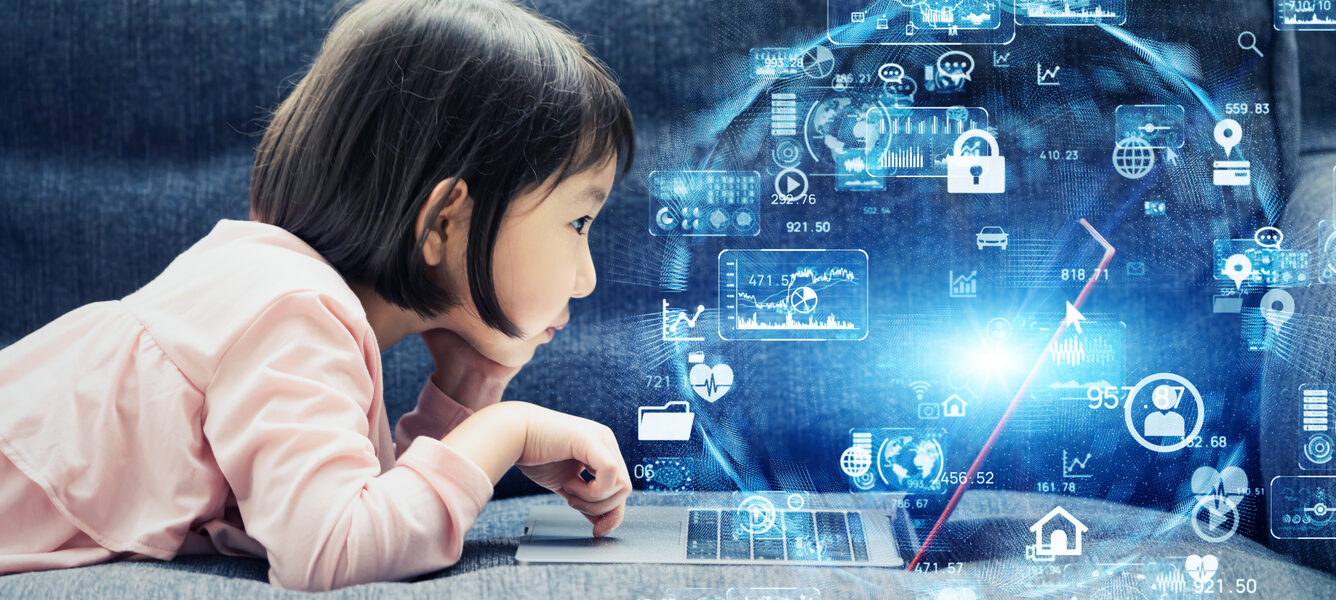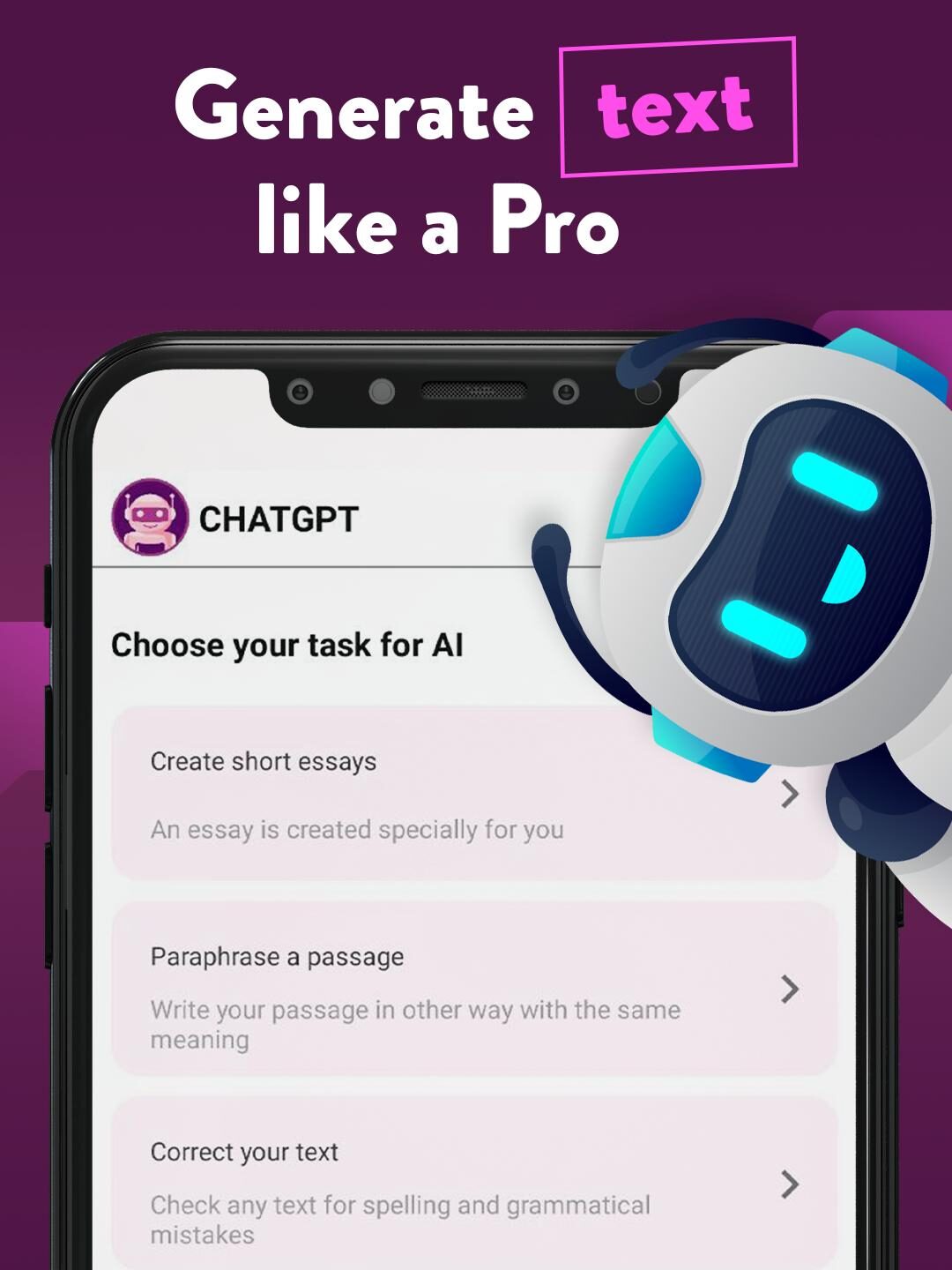Introduction: The Rise of AI
Artificial Intelligence (AI) is no longer just a futuristic concept from science fiction. It’s here, changing industries, reshaping economies, and transforming the way we live and work. AI refers to the ability of machines to perform tasks that typically require human intelligence, such as learning, problem-solving, and decision-making. It’s revolutionizing numerous sectors, from healthcare to entertainment, making it one of the most transformative technologies in the world today.
In this blog, we’ll explore how AI is transforming our world, from improving efficiency to creating new opportunities. Whether you’re new to AI or are looking to implement it in your organization, understanding its impact is crucial.
What is Artificial Intelligence?
AI Today: A Game-Changer in Technology
Artificial Intelligence (AI) is rapidly evolving and reshaping the technological landscape. Once considered a futuristic concept, AI is now embedded in many aspects of our daily lives and is influencing how industries operate globally. From healthcare to entertainment, finance to transportation, AI is enhancing efficiency, improving decision-making, and driving innovations that were once unimaginable. Here’s a deeper look into how AI is transforming various industries and what this means for the future.
AI in Healthcare: Revolutionizing Medicine and Patient Care
In healthcare, AI is making an incredible impact by improving patient outcomes and streamlining healthcare delivery. One of the most significant applications of AI is in diagnostics. AI systems can analyze medical images like X-rays, MRIs, and CT scans with a high level of accuracy, sometimes surpassing the capabilities of human doctors. These systems can detect early signs of diseases such as cancer, heart conditions, and neurological disorders, allowing for earlier intervention and better patient outcomes.
Moreover, AI-powered tools are being used to develop personalized treatment plans. By analyzing large amounts of patient data, including genetic information, medical histories, and lifestyle factors, AI can recommend the most effective treatments tailored to individual patients. This personalization not only improves the effectiveness of treatments but also reduces the risk of adverse effects.
Additionally, AI is playing a crucial role in drug discovery and vaccine development. Machine learning algorithms can process vast datasets to identify potential drug candidates faster than traditional methods. This speed and efficiency have been particularly valuable in recent years during the global push to develop COVID-19 vaccines.
AI in Finance: Enhancing Security and Decision-Making
In the finance sector, AI is transforming how financial institutions operate and interact with customers. One of the most impactful uses of AI in finance is fraud detection. AI systems can analyze transaction patterns in real-time and identify unusual behavior that may indicate fraudulent activity. This helps banks and financial institutions catch fraudulent transactions early, minimizing losses and protecting customers.
AI is also improving decision-making in finance. Machine learning algorithms can process vast amounts of data to help investors and analysts make more informed decisions. Whether it’s predicting stock market trends, assessing the risk of loans, or identifying investment opportunities, AI provides real-time insights that drive smarter, data-driven decisions.
Moreover, AI is playing a key role in customer service within the finance industry. Chatbots and virtual assistants powered by AI are helping financial institutions provide 24/7 support to their customers, answering inquiries, processing transactions, and resolving issues quickly and efficiently. This not only improves the customer experience but also reduces the workload on human staff.
AI in Retail: Personalizing the Shopping Experience
In the retail industry, AI is being used to create a more personalized shopping experience for customers. By analyzing consumer behavior, purchase history, and preferences, AI can recommend products that a customer is most likely to buy. This personalization increases customer satisfaction and loyalty, ultimately driving sales and boosting revenue.
AI is also improving inventory management in retail. Machine learning algorithms can predict consumer demand, helping retailers optimize stock levels and reduce waste. AI-powered systems can even assist in automating the replenishment process, ensuring that popular items are always in stock and readily available.
Additionally, AI is transforming the online shopping experience. Virtual assistants, chatbots, and AI-driven recommendation engines are becoming integral to e-commerce platforms. These tools help customers find products quickly, get personalized advice, and complete purchases seamlessly. Furthermore, AI is enhancing the use of augmented reality (AR) to allow customers to virtually try on products, such as clothing or makeup, before making a purchase.
AI in Transportation: Autonomous Vehicles and Smart Infrastructure
The transportation sector is undergoing a profound transformation thanks to AI. One of the most exciting applications is the development of autonomous vehicles, or self-driving cars. These vehicles use AI algorithms, sensors, and cameras to navigate roads, avoid obstacles, and make real-time decisions, all without human intervention. While there are still challenges to overcome, such as regulatory concerns and public trust, autonomous vehicles have the potential to drastically reduce traffic accidents, improve fuel efficiency, and revolutionize how we commute.
AI is also being used to optimize traffic management in cities. Smart traffic systems powered by AI can analyze traffic patterns in real-time and adjust traffic light timings to reduce congestion. In addition, AI can be used to predict traffic flow, allowing for more efficient routing of vehicles and better planning of public transportation schedules.
AI is also enhancing the logistics industry. AI-powered drones and autonomous trucks are being used to deliver goods more efficiently, reducing costs and delivery times. In the future, AI may play a key role in creating more sustainable and efficient transportation systems, from electric vehicles to optimized transportation routes.
AI in Entertainment: Personalizing Content and Experiences
AI is transforming the entertainment industry by creating more personalized and interactive experiences for consumers. Streaming platforms like Netflix, Spotify, and YouTube use AI algorithms to recommend content based on users’ preferences, viewing history, and behavior. These recommendations are not only more accurate but also more dynamic, adapting to the changing tastes of users over time.
In gaming, AI is being used to create more immersive and engaging experiences. AI-driven characters in video games can react to player actions in real-time, creating more dynamic and realistic interactions. AI is also being used to enhance the development of video games, from procedural content generation to AI-powered storylines.
Additionally, AI is improving content creation. AI tools are helping filmmakers, musicians, and artists generate new content, from writing scripts to composing music. Machine learning algorithms can analyze existing content to predict what will resonate with audiences, making the content creation process faster and more data-driven.
AI in Customer Service: Automating Responses and Improving Engagement
AI is significantly improving customer service across industries by automating responses and improving engagement. Chatbots, powered by natural language processing (NLP) and machine learning, are now able to handle a wide range of customer queries without human intervention. From answering frequently asked questions to troubleshooting technical issues, AI chatbots provide instant support, improving customer satisfaction and reducing response times.
Moreover, AI is being used to analyze customer feedback and sentiment in real-time, allowing businesses to address issues more proactively. AI-powered analytics tools can scan social media platforms, customer reviews, and surveys to provide insights into customer satisfaction, helping businesses improve their products and services.
AI in Manufacturing: Improving Efficiency and Reducing Costs
AI is also revolutionizing manufacturing by improving operational efficiency and reducing costs. AI-powered robots and automation systems can perform tasks such as assembly, quality control, and material handling more quickly and accurately than humans. These robots are capable of working around the clock, increasing production rates and reducing errors.
In addition, predictive maintenance powered by AI can help manufacturers avoid costly downtime by detecting equipment malfunctions before they happen. By analyzing data from machines and sensors, AI systems can predict when a machine is likely to fail and schedule maintenance accordingly, preventing expensive repairs and extending the lifespan of machinery.
AI in Security: Enhancing Protection and Surveillance
AI is improving security across various sectors, from cybersecurity to physical security. In cybersecurity, AI is used to detect and respond to threats in real-time. Machine learning algorithms can analyze network traffic, identify anomalies, and prevent cyberattacks before they cause damage. This is crucial in protecting sensitive data and safeguarding critical infrastructure.
In physical security, AI-powered surveillance systems are able to analyze video feeds, detect suspicious activity, and alert security personnel in real-time. Facial recognition technology, powered by AI, is being used to enhance security in airports, government buildings, and other high-security areas.
AI is rapidly becoming a game-changer in the technology landscape. Whether it’s improving healthcare outcomes, transforming transportation, or enhancing the customer experience, AI’s influence is being felt across industries and sectors. As technology continues to evolve, it’s clear that AI will play a key role in shaping the future of how we live, work, and interact with the world around us. The opportunities are vast, and the potential for AI to solve complex global challenges is immense. However, it’s also important to address the challenges it presents, particularly in terms of job displacement, ethical concerns, and regulation. With careful consideration and collaboration, AI’s positive impact on society can be maximized.
The Key Components of Artificial Intelligence
AI is built on several key components, each playing a significant role in its functioning and capabilities. Let’s break them down:
- Machine Learning
Machine learning (ML) is a subset of AI that enables systems to learn from data and improve over time without being explicitly programmed. ML algorithms identify patterns in data, allowing systems to make predictions or decisions based on new input. This technology is widely used in areas like recommendation systems, fraud detection, and predictive analytics.
- Natural Language Processing
Natural Language Processing (NLP) is a branch of AI that focuses on the interaction between computers and human language. It enables machines to understand, interpret, and respond to text or speech in a way that feels natural to humans. NLP powers technologies like chatbots, virtual assistants, and language translation services.
- Computer Vision
Computer Vision enables machines to interpret and understand visual information from the world. By analyzing images and videos, AI systems can detect objects, recognize faces, and even perform tasks like diagnosing diseases from medical images.
- Robotics
Robotics involves the design, construction, and operation of robots. AI enhances robotics by enabling machines to perform tasks autonomously. From manufacturing robots to autonomous drones, AI-powered robots are transforming industries like logistics and agriculture.
AI Applications in Everyday Life
AI is not just a tool for businesses; it’s also having a significant impact on our daily lives. Here are some ways AI is revolutionizing different sectors:
Healthcare: Transforming Diagnosis and Treatment
AI is making significant strides in healthcare by improving diagnostics, treatment plans, and patient care. AI systems can analyze medical data, such as X-rays and MRIs, to help doctors diagnose diseases more accurately and at an earlier stage. AI is also used in drug discovery, helping to identify potential treatments faster than traditional methods.
AI in Education: Revolutionizing Learning
In education, AI is transforming the way students learn and interact with content. Adaptive learning systems powered by AI can personalize educational experiences by adjusting the difficulty level and providing tailored feedback. AI is also being used to automate administrative tasks, allowing teachers to focus more on student engagement.
AI in Business: Automating Operations and Enhancing Customer Service
AI is streamlining business operations by automating repetitive tasks such as data entry, inventory management, and customer service. Chatbots powered by AI are improving customer interactions, providing instant responses to inquiries, and resolving issues without the need for human intervention.
AI in Transportation: Autonomous Vehicles and Smart Traffic Systems
The transportation industry is being revolutionized by AI, especially in the development of autonomous vehicles. AI-powered systems can help cars navigate roads, avoid obstacles, and make real-time decisions, potentially reducing accidents and improving traffic flow. AI is also being used in smart traffic systems to optimize traffic signals and reduce congestion.
AI in Entertainment: Personalized Content and Interactive Experiences
In the entertainment industry, AI is enhancing user experiences by providing personalized content recommendations. Streaming platforms like Netflix and YouTube use AI algorithms to suggest shows and videos based on your preferences. AI is also being used in gaming, creating more interactive and immersive experiences for players.
Challenges in Implementing AI
Despite its many benefits, implementing AI comes with its challenges. Here are some of the key issues that organizations face when adopting AI:
Data Privacy Concerns
As AI relies heavily on data, there are significant concerns about the privacy and security of personal information. Ensuring that AI systems comply with data protection laws and regulations is critical to gaining public trust.
AI Bias and Ethical Issues
AI systems are only as good as the data they are trained on. If the data contains biases, the AI system may make biased decisions. This is a major ethical concern, especially in areas like hiring, lending, and law enforcement.
Cost of AI Adoption
While AI offers significant benefits, the initial cost of implementation can be high. Small and medium-sized enterprises (SMEs) in Tier 3 countries, in particular, may struggle to afford the necessary infrastructure and expertise to adopt AI.
The Future of AI: What Lies Ahead?
As AI continues to evolve, its potential is virtually limitless. Here’s what the future may hold:
AI in the Workforce: Opportunities and Risks
AI will continue to automate many jobs, leading to both opportunities and challenges. While some jobs may disappear, new ones will emerge in fields like AI development, data analysis, and robotics. It’s crucial for workers to upskill and adapt to the changing job landscape.
AI’s Role in Solving Global Challenges
AI has the potential to address some of the world’s most pressing challenges, from climate change to healthcare. AI-powered models can help predict environmental changes, optimize energy consumption, and even improve the accuracy of medical diagnoses.
AI in Climate Change
AI can help tackle climate change by analyzing environmental data and optimizing the use of renewable energy. AI-powered systems can predict weather patterns, monitor deforestation, and even identify ways to reduce carbon emissions.
AI for Healthcare Advancements
AI is poised to revolutionize healthcare by enabling faster diagnoses, personalized treatments, and even robotic surgeries. The use of AI in medical research could lead to breakthroughs in treating diseases like cancer and Alzheimer’s.
The Global Impact of AI
Conclusion
AI is undeniably transforming the world, from improving healthcare to changing the way we do business. While the technology brings numerous benefits, it also presents challenges that need to be addressed. As AI continues to evolve, its impact on our lives will only grow, creating new opportunities and challenges alike.
Organizations looking to implement AI must be prepared for the initial investment, address ethical concerns, and stay ahead of technological advancements. The future of AI is bright, and it’s clear that this technology will continue to shape the world in profound ways.
FAQs
-
What is Artificial Intelligence?
-
AI refers to machines or systems that can perform tasks typically requiring human intelligence, such as learning, problem-solving, and decision-making.
-
-
How is AI transforming healthcare?
-
AI is transforming healthcare by improving diagnostics, automating administrative tasks, and aiding in drug discovery and personalized treatment plans.
-
-
What are the main challenges of implementing AI?
-
The main challenges include data privacy concerns, AI bias, high implementation costs, and the need for skilled personnel.
-
-
Will AI replace human jobs?
-
While AI will automate certain tasks, it will also create new opportunities for jobs in fields like AI development, data analysis, and robotics.
-
-
How can AI help with climate change?
-
AI can help predict environmental changes, optimize energy use, and reduce carbon emissions, contributing to the fight against climate change.
-




